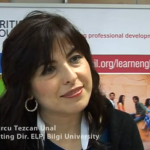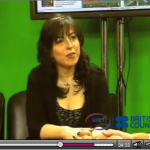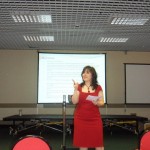 In general, when the name Sabancı University has been involved anything, you expect a certain quality without being actually there or seeing it yourself. Sabancı University 2nd International Conference on Language Education that was organized by the School of Languages on June 2-4 called Eclipsing Expectations was no exception. There was definitely certain quality from A to Z of the whole conference. Below are what I was impressed by most;
In general, when the name Sabancı University has been involved anything, you expect a certain quality without being actually there or seeing it yourself. Sabancı University 2nd International Conference on Language Education that was organized by the School of Languages on June 2-4 called Eclipsing Expectations was no exception. There was definitely certain quality from A to Z of the whole conference. Below are what I was impressed by most;
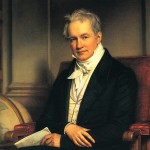 1. The former Rector’s opening speech; founding rector Professor Tosun Terzioğlu started with the quotation by Wilhelm Von Humboldt in 1820. “The diversity of languages is not a diversity of signs and sounds, but a diversity of views of the world.” Terzioğlu exemplified this spot on statement by means of a simple children’s song calle “Brother John” that has been translated into many languages from German to Thai. He underlined the fact that the translations of this song to different languages literally depicted the viewpoint and the culture of the countries in question.
1. The former Rector’s opening speech; founding rector Professor Tosun Terzioğlu started with the quotation by Wilhelm Von Humboldt in 1820. “The diversity of languages is not a diversity of signs and sounds, but a diversity of views of the world.” Terzioğlu exemplified this spot on statement by means of a simple children’s song calle “Brother John” that has been translated into many languages from German to Thai. He underlined the fact that the translations of this song to different languages literally depicted the viewpoint and the culture of the countries in question.
2. The student Plenary speeches; I really liked hearing the voices of the most important people in the classroom, learning more about their perspective and what has motivated them most in their journey of learning languages in a conference. They were highly successful and special people for sure, still their experience and anecdotes they s hared were appreciated by the audience.
hared were appreciated by the audience.
 3. Patsy Lightbown, whose book “How languages are learned” that she co-authored with Spada, N has been read by most of ELT people, came all the way from Canada. Just having the experience of meeting and talking to her was great. However, I was lucky enough to host her in my presentation at the conference on June 4 entitled “Size matters in teaching vocabulary in ELT”. Not only that, she was kind enough to write to me and praised my session:)
3. Patsy Lightbown, whose book “How languages are learned” that she co-authored with Spada, N has been read by most of ELT people, came all the way from Canada. Just having the experience of meeting and talking to her was great. However, I was lucky enough to host her in my presentation at the conference on June 4 entitled “Size matters in teaching vocabulary in ELT”. Not only that, she was kind enough to write to me and praised my session:)
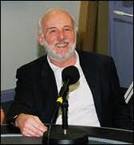 4. Tony Humphreys; That was the second time I had the chance to meet and talk to him. The first time I saw him was 2003 at BİLGİ, he was invite
4. Tony Humphreys; That was the second time I had the chance to meet and talk to him. The first time I saw him was 2003 at BİLGİ, he was invite d by my former director Oya Basaran as a guest
d by my former director Oya Basaran as a guest  speaker to the English Language Departme
speaker to the English Language Departme nt. Listening to him and thinking deeply about what he underlines as a clinic psychologist for us educators was another wonderful opportunity. I loved the idea of Breakfast with Tony. When I first met him I read his books called Myself, My Partner, A different Kind of Teacher and The Power of Negative Thinking. I am planning to read his new books now.
nt. Listening to him and thinking deeply about what he underlines as a clinic psychologist for us educators was another wonderful opportunity. I loved the idea of Breakfast with Tony. When I first met him I read his books called Myself, My Partner, A different Kind of Teacher and The Power of Negative Thinking. I am planning to read his new books now.
5. Last but not least, Dr Christine Coombe’s direct and friendly approach to the issue of assessment and testing, lovely Nur Kurtoglu- Hooton from Aston University and her incredible anecdote about her son, of course dear Deniz Kurtoglu-Eken’s speech on the different chains of perceptions in a classroom, the lively and joyful songs of the opening band, all the other cultural events such as the Japanese band and the wonderful premises and educational opportunities that Sabancı University can offer to the students and teachers.
I have to conclude with a few things to consider next time; the issue of paying for almost everything (lunch, shuttle and the activities) although you have already paid for the conference fee, the shuttle hours that have not been synchronized with the conference closing hours and the heavy conference bags.



